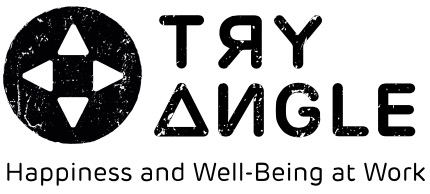The road to success is not only paved with talents and skills, but also our mindset plays a predominant role. American psychologist Carol S. Dweck discovered that there are two styles of thinking: the static mindset (“fixed mindset”) and the growth-oriented mindset (“growth mindset”).
What are the main differences between them? An important distinction between both styles is embodied in the vision on mistakes and, by extension, the entire learning process.
The fixed mindset
With a fixed mindset, you assume that intelligence is a given, that is, moreover, in need of regular validation and confirmation. That is why we see that people with a static mindset often avoid challenges and tend to give up when obstacles arise. Efforts to learn something new or deepen existing knowledge are pointless, and criticism is interpreted as a threat, as is the success of others. Is it any wonder that this style of thinking limits performance? Furthermore, in people with such a view of the world, we often see a negative impact on the thought process as well as difficult learning processes.
The growth mindset
A growth mindset is based on the diversity of every human being with the possibility of learning as the principal common denominator. With a growth mindset, you can develop your intelligence and improve your performance. That is why people of this type love to learn. Challenges are growth opportunities, and mistakes are welcomed as learning moments. It goes without saying that a learning process involves a certain effort, and that obstacles require perseverance so that you can rise above yourself. Successful role models can only inspire, and someone with this type of vision is also open to criticism.
It should come as no surprise that people with a static mindset rate talent higher than effort, while people with a growth mindset attach much more value to the work you invest in order to become successful.
Mindset and feedback
Starting from the distinction between both mindsets, Carole Dweck conducted a telling experiment around feedback. It turned out that focussing feedback on talent (“Top! What a great result! You must be really good at this!”) caused results to plummet in subsequent challenges, because participants lost confidence in their talents during more difficult assignments. Feedback focussed on the investment (“Top! You have achieved a good result. You must have worked hard!”) reinforced performance during the assignments that followed.
The manager makes the difference
Managers with a growth mindset believe in the growth of their employees and like to open the door to learning, feedback and change. Managers with a fixed mindset, on the other hand, do not really see the usefulness of coaching and training. They do not believe that people can change and therefore often pay little attention to appreciation for effort and hard work.
Which style of thinking fits you and your manager best? And ish that the mindset your organisation cherishes? Research shows that a corporate culture that is characterised by a style of thinking that is growth-oriented creates a safe framework in which employees feel more free to share their expertise, vision and skills for the benefit of the organisation. It also promotes collaboration and innovation. No stress should you conclude that today, mainly a fixed mindset prevails: the beauty of our brain is that it is elastic, and that therefore also the static mindsets of this world can learn to think in a different way and focus more on growth.
Do you have a growth mindset and are you looking for coaching or training on this subject? Are you interested in other aspects of SOFT skills, well-being or happiness at work? Then take a look at www.tryangle.be.





